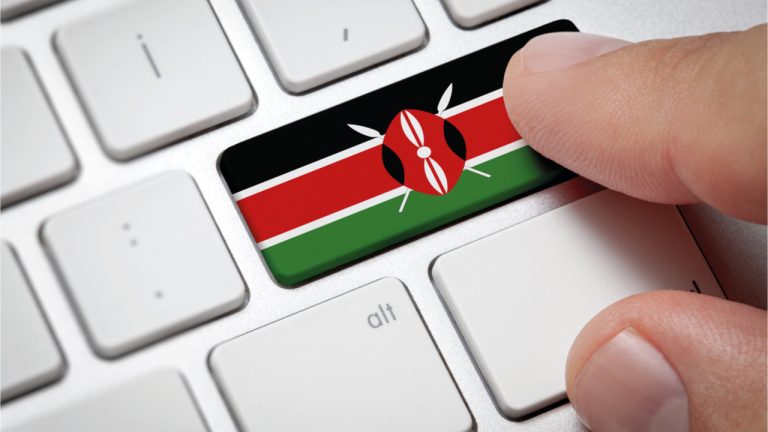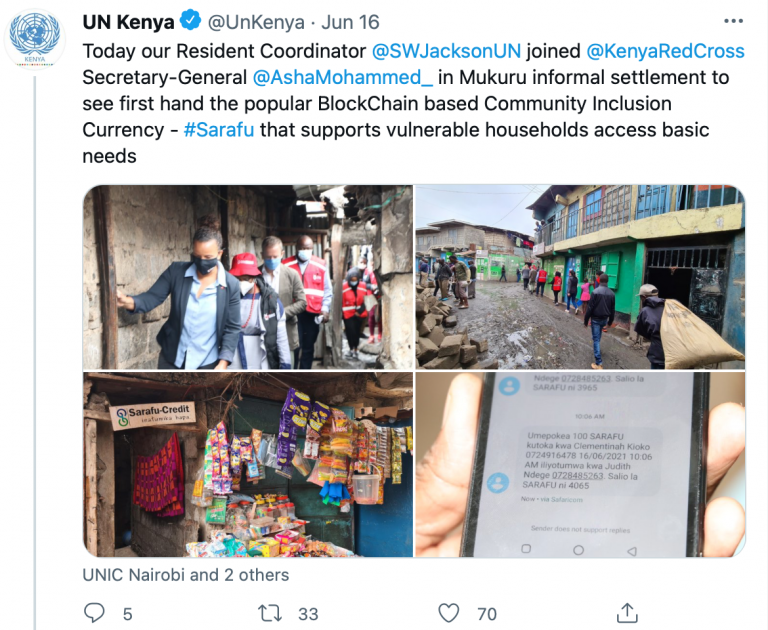
The United Nations (UN) mission in Kenya recently praised a local blockchain-based community inclusion currency (CIC) initiative for its part in helping to reduce poverty in one of the country’s poor informal settlements. The mission’s sentiments follow a tour of the Mukuru informal settlement by its resident coordinator, Stephen Jackson. In a tweet, the mission commended the Sarafu blockchain anchored e-voucher system for helping “vulnerable households access basic needs.”
An Alternative Medium of Exchange
In a different tweet, UN Kenya also praised residents of the informal settlement for their embrace of the Sarafu blockchain-based e-vouchers system. The world body further added that by using this trading system, the Mukuru informal settlement is “encouraging local circular economy and reducing poverty levels.”

According to past remarks attributed to Will Ruddick — one of the co-authors of a whitepaper document that explains the novel monetary system — CICs are shares that are “acting as a medium of exchange.” Another report explains these currencies also act as a store of value in times of economic turbulence and hyperinflation.
In the meantime, in his own tweet on June 16, Ruddick again explains how blockchain-based e-vouchers can be useful in times of economic difficulty. He said:
Sarafu is a Community Inclusion Currency that communities can use to trade with each other when the national currency is scarce. It utilizes an application-specific blockchain Bloxberg as a backend ledger with a USSD interface for people without internet.
Empowering Marginalized Communities
The Sarafu CICs — initially anchored on the Bancor protocol — are championed by Grassroots Economics, a Kenyan non-profit foundation that seeks to empower marginalized communities. On its website, the foundation says it has “implemented community currency programs in 45 locations across Kenya and assisted with 2 in South Africa.” In addition, the foundation claims to have helped “more than 40,000 small businesses, churches and schools take an active role in their own economy and development.”
Meanwhile, in addition to getting recognized by the UN Resident Coordinator, the Sarafu CIC initiative has also received support from Kenya Red Cross.
What do you think of the Sarafu CICs? You can share your views in the comments section below.

Post a Comment